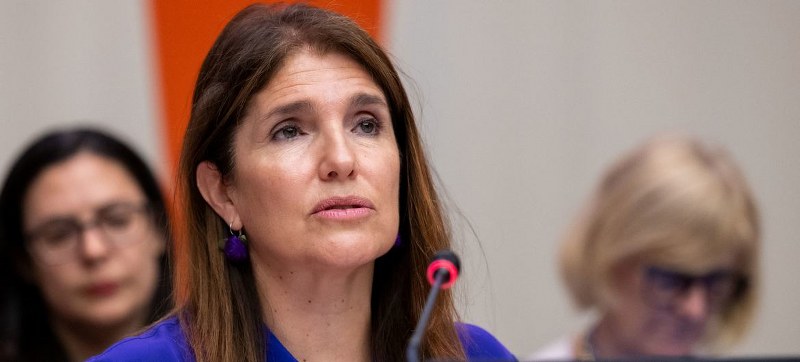New Economic and Social Council leadership takes the helm

New York: The Economic and Social Council (ECOSOC) which oversees sustainable development across the UN, elected its new President on Thursday, marking the start of its new session.
The 54-member body, which is one of the six main pillars of the UN system, elected Paula Narváez Ojeda of Chile to the top seat.
It also elected as Vice-Presidents, Akan Rakhmetullin (Kazakhstan), Ivan Šimonović (Croatia) and Robert Rae (Canada), representing the Asia-Pacific, Eastern European, and Western European and other regional groups, respectively.
The election of the Vice-President from the African regional group will be held at a later date.
‘A unifying platform’
Delivering her opening remarks as President, Ms. Ojeda said she is committed to ensuring that ECOSOC provides a unifying platform to advance the implementation of the 2030 Agenda for Sustainable Development and the Sustainable Development Goals (SDGs).
“The SDG Summit in September will be a pivotal moment in our path to the 2030 Agenda; it would be critical for the Economic and Social Council to build on the momentum from the SDG Summit to support countries in their efforts to achieve the SDGs,” she said.
Presenting her priorities for the new session, Ms. Ojeda underlined the importance of leveraging ECOSOC’s policy guidance to help ease emergencies, focusing on the food supply crisis and strengthening humanitarian aid, while also addressing gaps in the international financial architecture.
She added that she would also focus on concrete solutions for climate action, promote gender equality and empowerment of women and girls, while also strengthening institutions in the context of technological change and engaging civil society.
‘Unprecedented levels’
Reflecting on her year in office, outgoing President Stoeva noted that the world is still grappling with the lingering effects of the COVID-19 pandemic, the war in Ukraine, escalating inequalities, debt and climate change.
“Humanitarian needs are at unprecedented levels globally, we are at record levels of acute food insecurity and risk of famine and we are seeing ever-increasing number of refugees and internally displaced persons,” she said.
Though the picture is grim, Ms. Stoeva continued, it can be changed with the implementation of the 2030 Agenda, “our roadmap to transform the world.”
She also highlighted the major accomplishments of her year in charge of ECOSOC, including the Youth Forum, preparations for the SDG Summit, the High-Level Political Forum (HLPF) on Sustainable Development earlier this month, as well as engagements with diverse stakeholders.
Workplan
At the meeting, ECOSOC adopted the agenda for its 2024 session, as well as a resolution on its working arrangements.
In accordance with established practice, ECOSOC President Ojeda then drew a lot to determine the seating arrangement for the July 2023-July 2024 session, selecting Croatia to take the first seat, with others to follow in alphabetical order.



